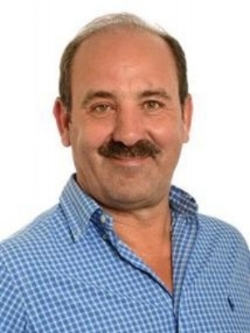Professor Dale Wigley and his team are finding out what happens when the DNA in a cell is damaged, and how the cell deals with it. If DNA damage is not repaired correctly, mistakes occur in important genes which can lead to cancer.Professor Wigley studies bacteria grown in the lab to investigate DNA repair. Bacteria are a simple model system and easier to work with than human cells. Understanding the DNA repair processes in bacteria will help Professor Wigley and his team gain insight into the similar, more complex, processes at work in human cells.Learning more about how cells repair damage to their DNA could lead to new ways to prevent or treat cancer in the future.
Dr Adam Jalal
Research Associate
Adam earned his PhD from the John Innes Centre where he worked on the ParB/Noc family of CTPases. Currently, Adam's research focuses on chromatin remodelling by the INO80 family of proteins.
Research Associate
Paul has got experience in single molecule imaging and an interest in unpicking the molecular mechanisms of the cell. Currently, Paul is working on chromatin remodelling complexes.
Laboratory Manager
She is the manager of the Structural Biology Baculovirus expression facility at Imperial College.
Senior Scientific Officer
Completed a BAppSci in Australia and a number of years later a part-time MSc in Biomolecular Organization at Birkbeck College. Liz worked at the Institute of Cancer Research for 14 years in Professor Keith Willison’s Lab before joining the Wigley Lab in 2011.
Resarch Associate
Dennis earned his PhD from the National University of Singapore using structural biology to study actin cytoskeleton. He joined the Wigley lab as a post-doc in 2020, and currently uses electron microscopy to study chromatin remodelling complexes of the INO80 family.
Laboratory Technician
Michael completed a BSc in Structural Molecular Biology at Birkbeck College (2018) before joining the Wigley Lab as a technician in 2020. Main work involves protein expression and purification relating to chromatin remodelling complexes of the INO80 family.






